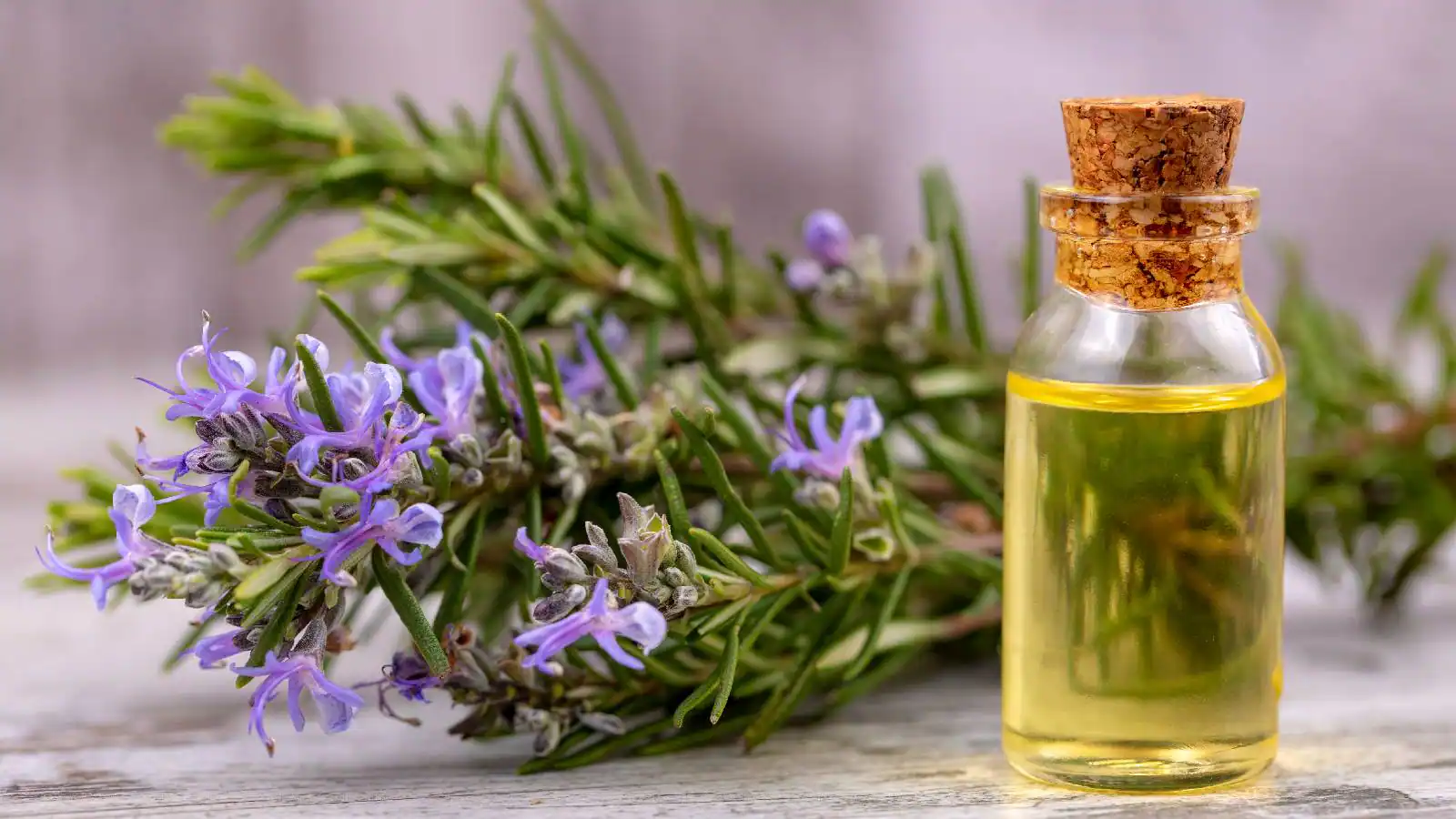Rosemary oil, derived from the aromatic herb Rosmarinus officinalis, has been traditionally celebrated for its myriad health benefits, particularly in hair care. However, concerns have emerged regarding its potential link to hair loss. This article delves into the properties of herbal oil, its effects on hair health, and insights from dermatologists to determine whether it can cause or prevent hair loss.
Understanding Rosemary Oil
Rosemary oil is an essential oil extracted from the rosemary plant, native to the Mediterranean region. Known for its antioxidant, anti-inflammatory, and antimicrobial properties, it has been utilized in various therapeutic applications, including enhancing memory, relieving muscle pain, and promoting hair growth.
Rosemary Oil and Hair Health

The interest in rosemary oil for hair care primarily stems from its potential to improve scalp circulation. Enhanced blood flow to hair follicles may prevent them from being deprived of essential nutrients, thereby reducing hair thinning and loss. Additionally, rosemary oil's antimicrobial properties can help maintain a healthy scalp environment, potentially preventing conditions like dandruff that may contribute to hair shedding.
Scientific Evidence
A notable study published in 2015 compared the efficacy of rosemary oil to 2% minoxidil (a common hair regrowth treatment) in individuals with androgenetic alopecia (pattern hair loss). Over six months, participants applied either rosemary oil or minoxidil to their scalps. The results indicated that both groups experienced a significant increase in hair count, with no substantial difference between the two treatments. Interestingly, the rosemary oil group reported less scalp itching compared to the minoxidil group, suggesting that rosemary oil might be a more tolerable option for some individuals.
Dermatologists' Perspectives
Dr. Neera, a Harvard-trained dermatologist, has addressed the viral trend of using rosemary oil for hair growth. She asserts that rosemary oil does not significantly impact hair growth and recommends alternative treatments. Dr. Neera suggests using pumpkin seed oil, which may help naturally lower dihydrotestosterone (DHT) levels—a hormone linked to hair loss—and possesses anti-inflammatory properties. Incorporating foods rich in lycopene and biotin, such as tomatoes, carrots, berries, and oily fish, can also aid in blocking DHT production and promoting hair health.
Conversely, other dermatologists acknowledge the potential benefits of rosemary oil. They highlight that rosemary oil, comparable to minoxidil, can improve hair strength and moisture while providing antioxidants. However, they emphasize the importance of consistent application and patience, as visible results typically require several months of regular use.
Potential Side Effects
While rosemary oil is generally considered safe for topical use, it can cause skin irritation or allergic reactions in some individuals, especially when applied in high concentrations. Symptoms may include redness, itching, or a burning sensation on the scalp. To minimize the risk of adverse reactions, it is advisable to dilute rosemary oil with a carrier oil, such as coconut or jojoba oil, before application. Performing a patch test on a small skin area can help determine sensitivity.
Can Rosemary Oil Cause Hair Loss?

Current evidence does not support the notion that rosemary oil causes hair loss. On the contrary, some studies and anecdotal reports suggest that it may promote hair growth and improve scalp health. However, individual responses can vary, and more extensive research is needed to fully understand its efficacy and safety.
Usage Recommendations
For those considering incorporating rosemary oil into their hair care routine, the following guidelines may be beneficial:
- Dilution: Mix a few drops of rosemary oil with a carrier oil to reduce the risk of skin irritation.
- Application: Gently massage the mixture into the scalp to stimulate blood circulation.
- Frequency: Start with applications once or twice a week, gradually increasing frequency as tolerated.
- Consistency: Regular use over several months is often necessary to observe potential benefits.
- Patch Test: Conduct a patch test before widespread application to check for allergic reactions.
Conclusion
While rosemary oil is unlikely to cause hair loss and may offer benefits in promoting hair growth and scalp health, its effectiveness can vary among individuals. As with any treatment, it is essential to approach its use with caution, be aware of potential side effects, and consult with a healthcare professional for personalized advice. Further research is warranted to conclusively determine rosemary oil's role in hair care.
